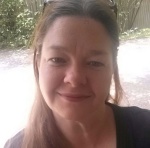Top Conceptual Skills to Add to Your Resume

Whether you know what they are or not, conceptual skills are essential to landing a new job.
Conceptual skills are more valuable than you may realize. They’re critical for roles that require strategy, innovation, and big-picture thinking, and employers love seeing resumes come across their desks that prove you can solve complex problems and drive strategy. When you add conceptual skills to your resume, it shines a bright light on the fact that you’re not just a doer – you’re an achiever.
Let’s talk about the top conceptual skills to add to your resume and why they’re essential for standing out as a candidate.
What are conceptual skills?
Going back to the concept of being an achiever rather than a doer – conceptual skills are those skills that allow you to think critically, solve complex problems, and plan for the future, even in cases where there’s a lot of ambiguity. You can connect ideas and envision solutions beyond immediately available information.
Having strong conceptual skills also allows you to see how things fit together. For example, you understand that a change in the marketing department would have a domino effect on sales, order fulfillment, and customer satisfaction. Above that, you also are capable of addressing challenges along the way that benefit the overall organization long-term.
If you’re a conceptual thinker, you are the type of person to look beyond day-to-day tasks to develop plans (large and small) that align with broader objectives – think: strategic planning. You also lean heavily on analytical thinking and can see how data and trends provide insights into real-world solutions.
Oftentimes, you see conceptual skills in management, but you don’t have to be a manager or leader to be effective at strategic planning, analytical thinking, or problem-solving. Don’t let your title dissuade you from highlighting conceptual skills on your resume.
Why employers value conceptual skills
As you read through job descriptions, you probably notice that the main emphasis is on technical skills, also known as hard skills. That’s things like programming, data analysis, and project management. Those skills that you’ve learned through education and training – the nitty-gritty knowledge you have to have to get the job done.
However, just because the job description highlights technical skills doesn’t mean conceptual skills are any less important. In fact, employers view conceptual skills as critical for long-term success because they know that candidates with these skills are the ones who’ll contribute to propelling the company forward.
So, what’s the difference?
As you can imagine, both skills play a different role in how you perform your job. Technical skills are what you use to perform specific tasks, and conceptual skills prove that you can think beyond the immediate task to contribute to the bigger picture.
Technical skills (or hard skills) are specific abilities like coding, designing, bookkeeping, social media advertising, technical writing, content creation, or software development. Don’t be confused by thinking technical skills are akin to your computer savviness.
Conceptual skills are more focused on understanding complex issues and include things like risk management, autonomous decision-making, visionary leadership, creativity, innovation, adaptability, delegation, and conflict resolution.
To create a well-rounded resume that proves you’re the best person for an open position, you have to have both types of skills on your resume.
Examples of conceptual skills to add to your resume
Here are some top conceptual skills to consider and tips for effectively integrating them into your resume:
1. Strategic Thinking
Strategic thinkers can plan for long-term success and align their work with the bigger goals of the organization. When you’re adding to your resume, use phrases like “Developed strategic initiatives that aligned with company objectives and drove growth by X%.”
2. Problem Solving
Problem-solving skills allow you to address challenges creatively and efficiently, which, as you know, is essential in ever-changing work environments. Try adding something like “Identified and resolved process inefficiencies that reduced project costs by X%” to your resume to prove you can solve problems.
3. Decision-Making
Effective decision-making shows you can assess options, weigh risks, and make choices that support the organization’s objectives. Autonomous decision-making demonstrates that you can solve a problem and implement a solution without a manager or leader standing over your shoulder. No matter how you choose to highlight this on your resume, phrases like “Led decision-making process for resource allocation, optimizing budget use” can showcase your ability to make informed choices that benefit your team.
4. Analytical Thinking
Analytical thinkers interpret data, spot trends, and make insights that drive strategy and decision-making. When writing your resume, mention specific outcomes with wording like “Conducted data analysis that informed product development and led to an X% increase in user satisfaction.”
5. Creativity and Innovation
Creativity and innovation demonstrate that you can think outside the box – of course, think outside the box is one of those overused resume phrases. So, you have to back it up with some sort of quantifiable metric. Describe your contributions with phrases like “Introduced an innovative approach to streamline workflows, improving efficiency by X hours per week.”
6. Adaptability
Adaptable employees can handle change smoothly and encourage others to get on board with new processes, making it a highly-valuable and sought-after skill. You can show adaptability on your resume by saying something like “Adapted project strategy to meet shifting market demands and expanded market reach by X%.”
7. Risk Management
Risk management skills are critical for identifying potential obstacles and creating proactive solutions, whether for things like cybersecurity, loss prevention, or financial solvency. Use real-world examples on your resume like “Developed a risk assessment plan that identified project bottlenecks and minimized potential delays by X# of days.”
8. Visionary Leadership
Visionary leaders inspire and motivate others while simultaneously fostering a sense of purpose and driving progress within their teams. Highlight your leadership success with statements like “Created and implemented a vision-driven roadmap that exceeded quarterly targets by X%.”
How to develop and improve conceptual skills
You may be thinking that your conceptual skills aren’t all that great. That’s okay because you can make them better. It’ll take time, though, but you can engage in a few everyday practices to make them stronger.
Seek out challenging problems by volunteering for cross-functional projects to boost your ability to think critically and work through difficult problems.
Read a lot of industry articles, case studies, and reports so that you can gain exposure to new ideas and stay on top of trends. This will help you broaden your perspective.
A bit of self-reflection goes a long way in helping you identify areas for improvement and recognize patterns in how you approach challenges.
Partner with your network to seek a mentor or get feedback from experienced professionals on insights you can use for inspiration.
Live to learn! Take courses, attend workshops, and look for professional development opportunities to expand your skills with new frameworks or techniques.
Practice and then practice some more. Start small, and when you get good at solving small problems and making small decisions, move on to bigger projects to sharpen your skills.
Conceptual skills a superpower?
Conceptual skills may not be a superpower per se, but they can have a major impact on helping you build a meaningful career. After all, they’re not just qualifications on a resume – they’re the qualities that allow you to innovate, lead, and make a lasting impression. Embrace your conceptual skills, grow them, and watch doors fly open.
If you’re ready to highlight your conceptual skills on your resume, we can get you started with a free resume review. The results of the review will tell you what needs to be added, removed, and highlighted so your resume stands out from the crowd.

